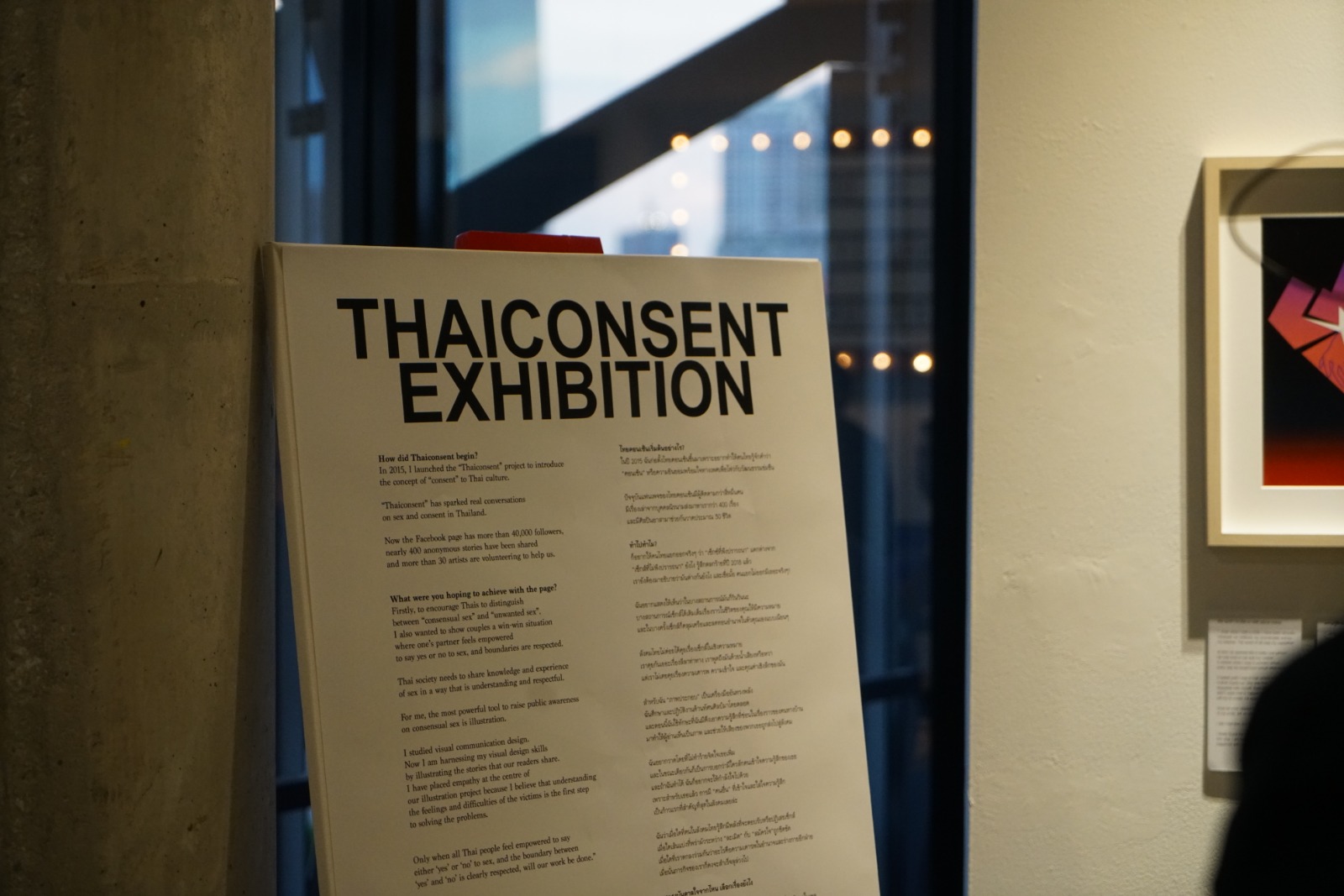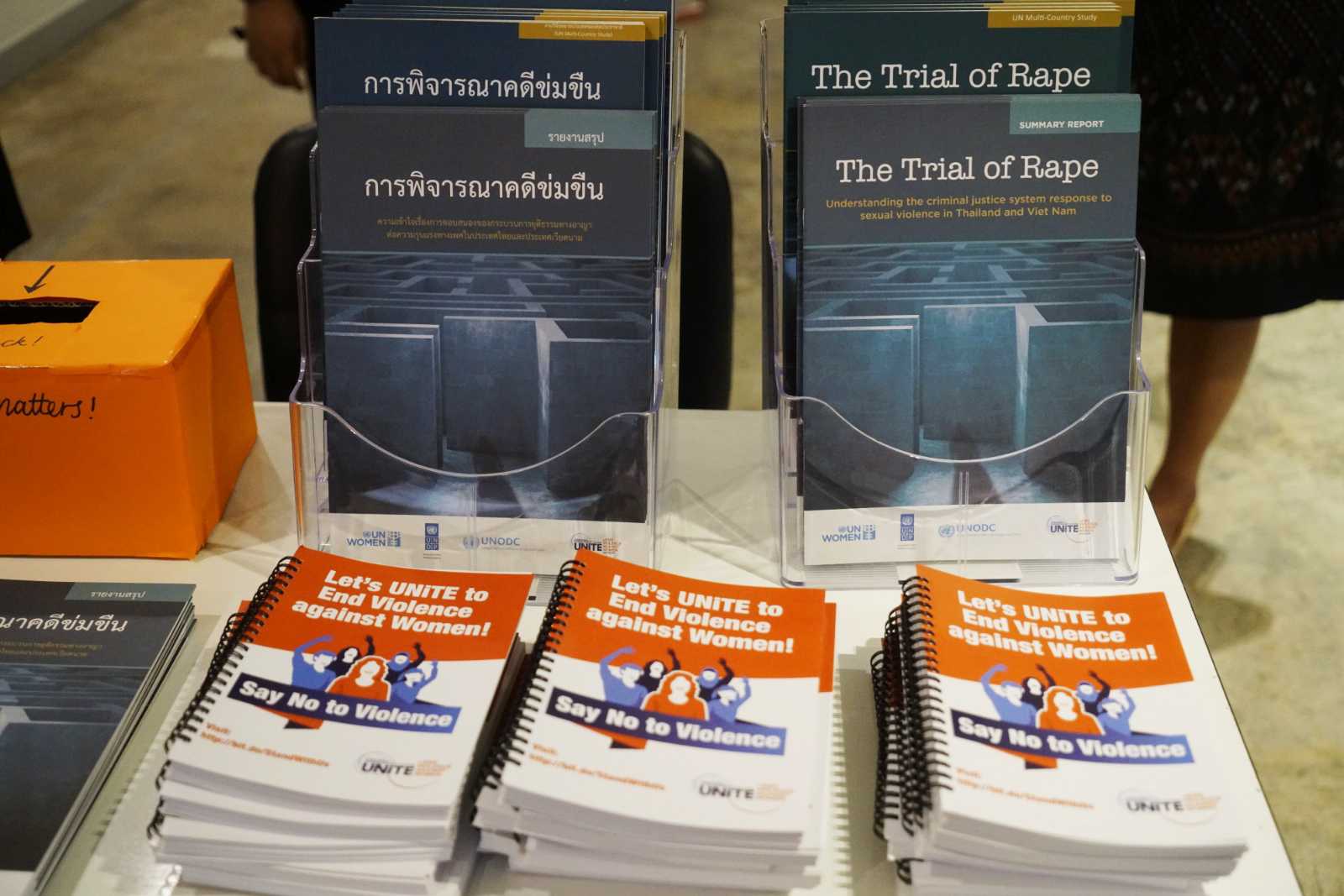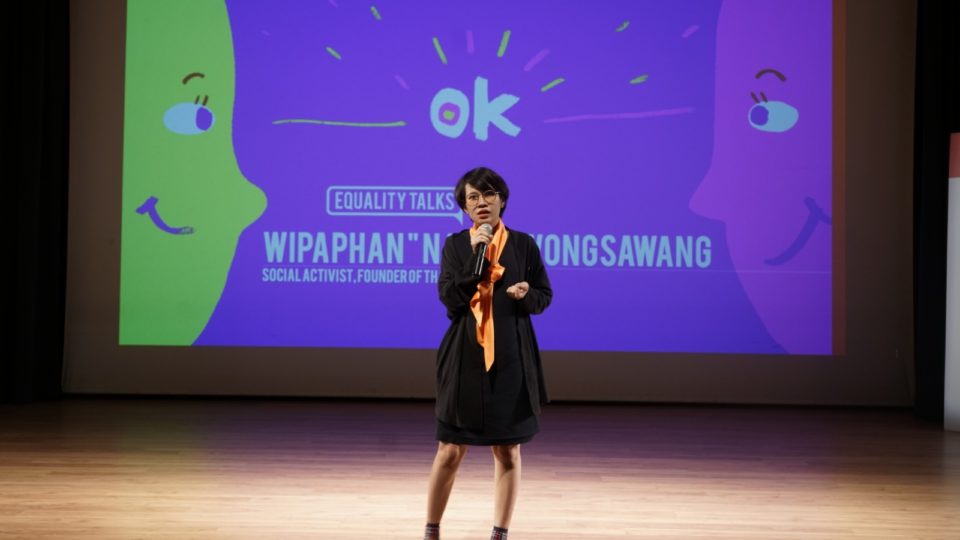“The first time he hit me, I forgave him, and then several times after, I still forgave him,” said 26-year-old lawyer Busayapa Srisompong.
“Until the last time … I remember his hands around my neck strangling me. He punched me in the face, and when I tried to fight, he hit me with a pan.
“I fell down on the floor, and he started kicking me again in my stomach and torso.”
That was the day Busayapa finally left her partner.

On Tuesday, UN Women — in partnership with the Embassy of Canada and the Netherlands — hosted the “E.Quality Talks” event in Bangkok to commemorate the International Day for the Elimination of Violence against Women, which falls each year on Nov. 25.
Busayapa, along with five other Thai advocates and survivors of physical and sexual violence, took to the stage with their personal stories of abuse and their search for justice for the crimes done unto them.
The event aimed to break the silence surrounding gender-based violence and open the floor for honest conversations about uncomfortable topics.
“Sharing stories is turning silence into action, turning more and more survivors, who are saying this is enough, into powerful advocates,” Melissa Alvarado, UN Women’s Ending Violence against Women Programme Specialist, said in her opening remarks.
Quest to Justice
Busayapa, who became a pro bono lawyer for other violence survivors, remembered the challenges she faced in trying to file a police report about her abusive partner back when she had just graduated law school and was living in Mae Sot, a district bordering Myanmar.
As a women’s rights advocate, Busayapa is no stranger to the laws regarding sexual violence in Thailand. However, she recalled feeling “confused, lost and heartbroken” when she herself had to take her own abuse to the authorities.
“They kept asking me if he was drunk, why I didn’t fight back … they even asked me why I let him hit me,” she recalled.
Thararat Panya, a Thammasat University law student and activist, who sparked a debate last year after openly sharing her sexual assault story online, spoke of her own disappointment in the legal system, when her alleged abuser, an older student in the law program, received only a semester-long suspension and a community service sentence for “inappropriate behavior.”
“The legal process, as it stands, isn’t victim-friendly. For example, when a woman reports a rape, she is forced to tell her story over and over again though she is still in pain, or sometimes you get asked offensive questions that reflect the biases of the police,” she said.
“Because [of that], most women don’t know how to seek justice for sexual violence crimes.”
A study published last year by U.N. Women revealed that almost 90 percent of rape cases in Thailand go unreported to authorities.
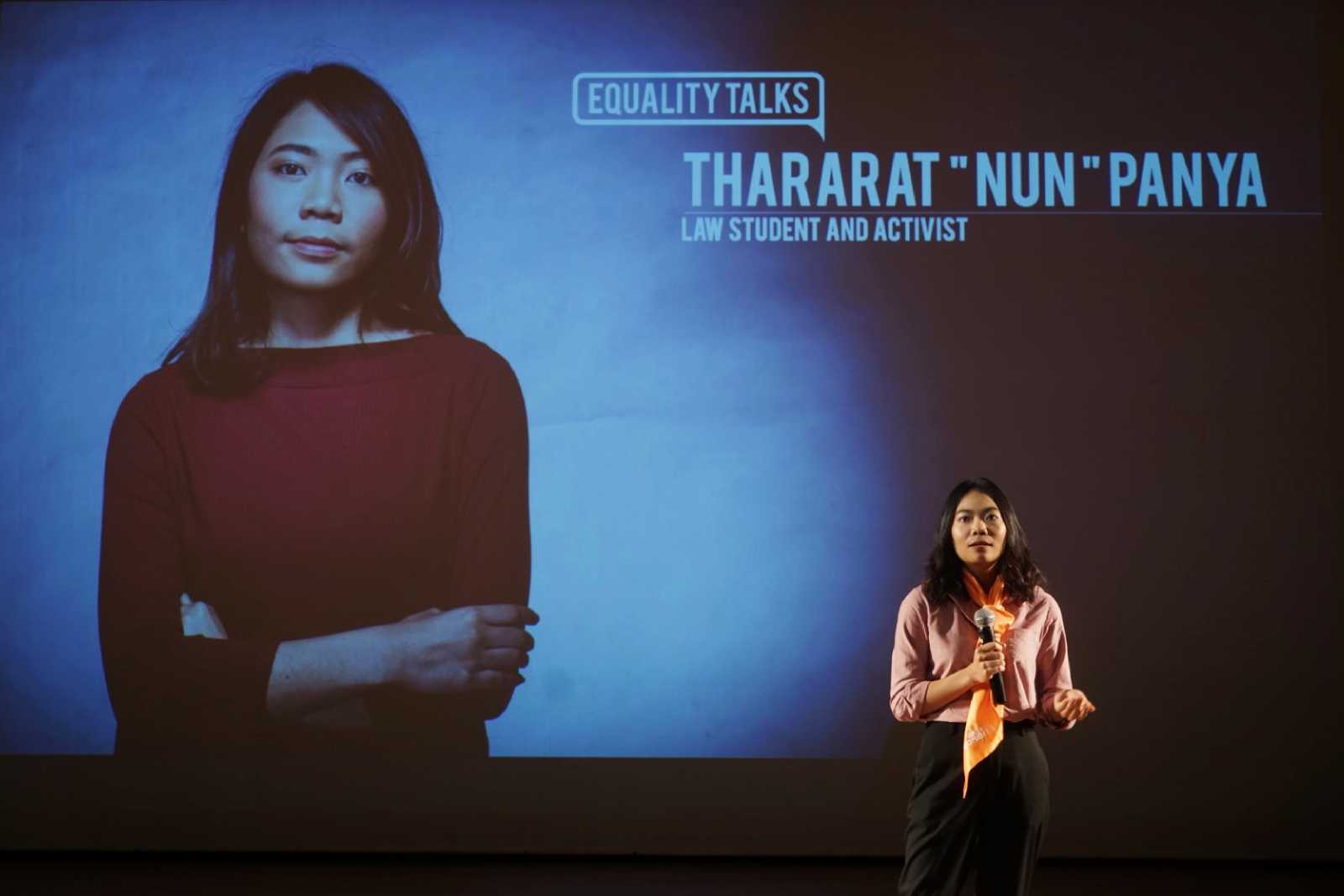
‘Stood there and watched’
The day’s last speaker, Watcharapon “Sia” Kukaewkasem, an activist from the Akha community — an indigenous hill tribes in the north of Thailand — recalled a specific moment in her childhood. In a bid to get away from her abusive father, Watcharapon, her mother, and her brother attempted to leave their village.
“We didn’t get that far… We watched our mom being dragged and beaten in front of us. I remember being so scared, angry, and helpless. I couldn’t do anything to help my mom. I just hugged my brother and cried,” said Watcharapon, who was just 7 years old at the time.
“There were a lot of people in the market. Some of them just stood there, some just looked the other way, while others just went on with whatever they were doing.
“This woman needed help — and people who were willing to step in and supported her, not a community that silently watched her get abused,” she said.
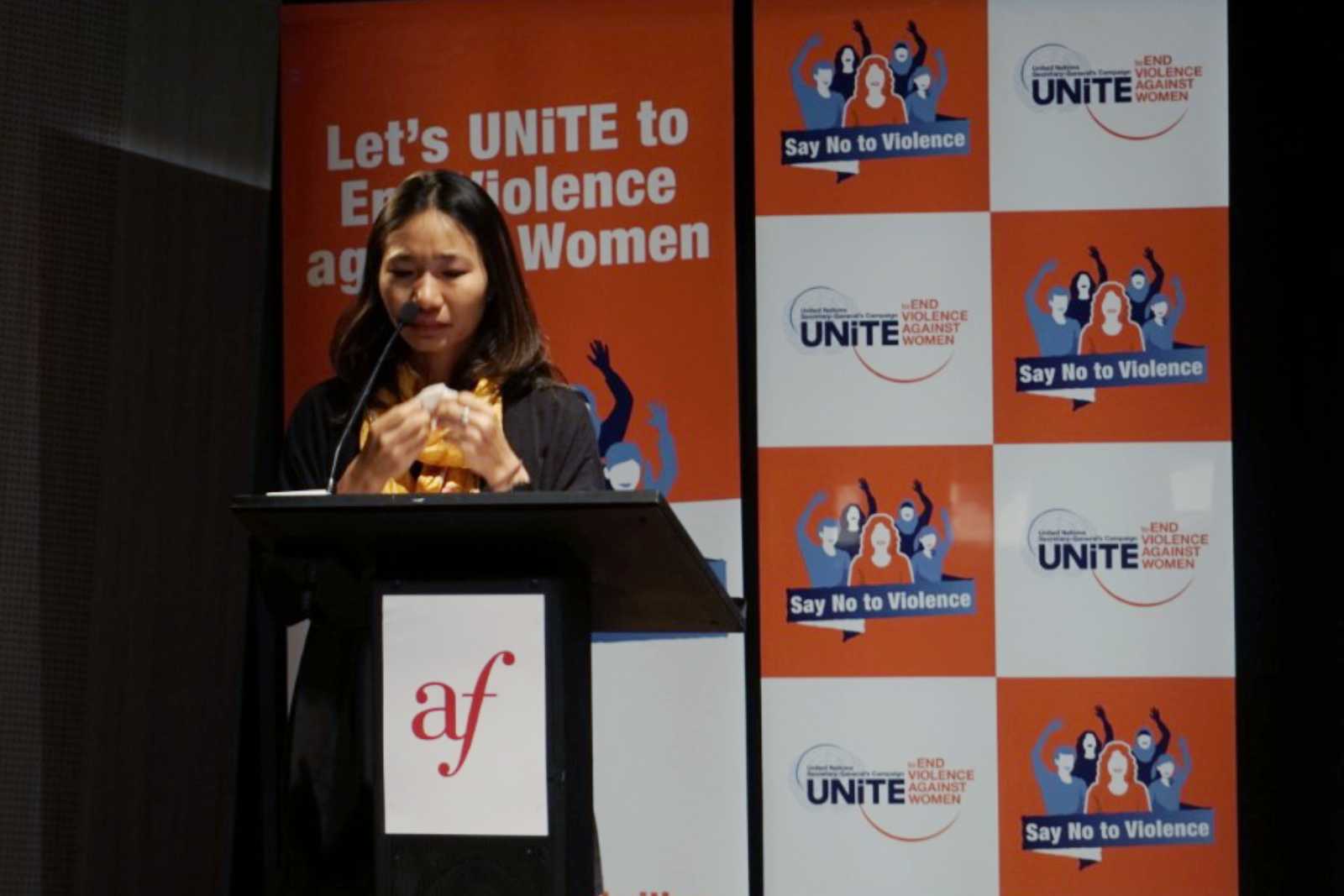
Though all six speakers told wildly different tales, each illustrated one common theme — that Thai culture allows for gender-based violence to take place.
According to supermodel Sirinya Bishop, a speaker at the event and founder of social media movement #DontTellMeHowToDress, raising awareness of the violence is an important first step in addressing the issue.
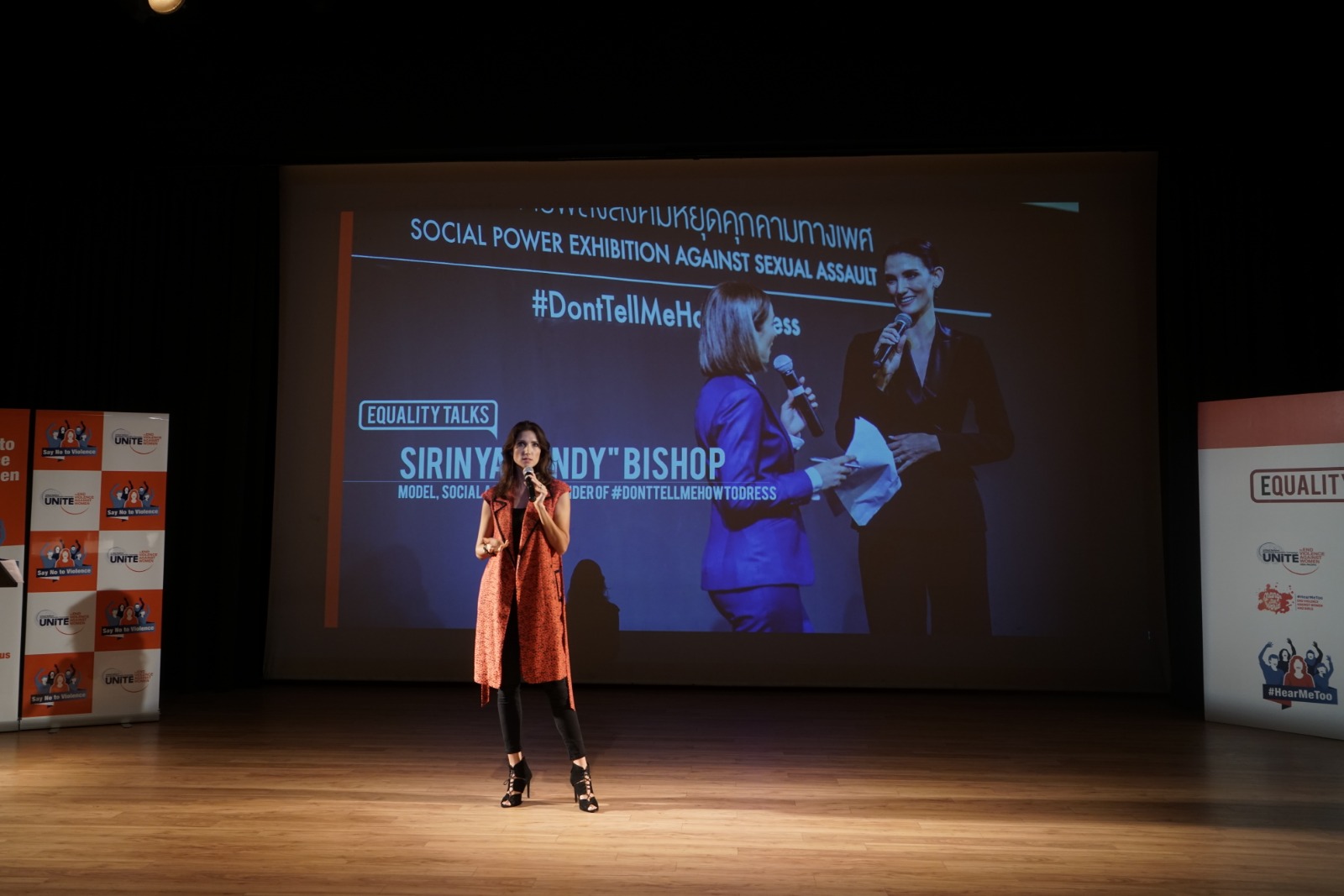
“We must break the cycle of violence. We need to encourage women to speak up, and most importantly, we need to educate our girls and boys about respect,” she said.
Busayapa agreed: “If we keep giving power to those who abuse others, there will always be victims.”
